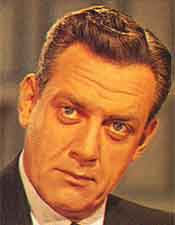I read this guy every day, because he's a great writer and a brilliant humorist. This, after all, is the man who put together perhaps the best two-word combo in the history of literature:
shaved horta. He's the mind behind the
Institute of Official Cheer — which of its own weight is enough to justify and redeem the internet, pornworms and spamups be damned.
But there's someting in his writing that makes my temples ache (I'm not talking about his politics, though see below for more on that) — something I couldn't quite articulate until I thought of this snippet of dialogue from Woody Allen's wonderful
Manhattan, in which Isaac (Allen) is appalled by Yale and Mary's (Michael Murphy and Diane Keaton) smug intellectual dismissal of many of his heroes:
Yale: I think Lewitt's overrated. In fact, I think he may be a candidate for the Academy. Mary and I have invented the Academy of the Overrated, for such notables as Gustav Mahler...
Mary: And Isak Dinesen, and Carl Jung...
Yale: Scott Fitzgerald...
Mary: Lenny Bruce. Can't forget Lenny Bruce, now, can we? How about Norman Mailer? And Walt Whitman?
Isaac: I think that those people are all terrific, every one that you mentioned.
Yale: Who was that guy you had? You had a great one last week...
Mary: No, I didn't have it — it was yours. It was Heinrich Böll, wasn't it?
Isaac: Overrated?
Yale: Oh, God. Oh, we wouldn't want to leave out old Heinrich...
Isaac: What about Mozart? I mean, you guys don't want to leave out Mozart, I mean, while you're trashing people...
Mary: Ah, well, how about Vincent van Goch?
Isaac: Van Goch? She said van Goch? Van Goch...
Mary: Or Ingmar Bergman?
Isaac: Bergman? Bergman is the only genius in cinema today, I think.
Yale: He's a big Bergman fan.
Mary: God, you're so the opposite, I mean you write that absolutely fabulous television show, it's really, really funny, and his view is so Scandinavian. It's bleak. My God, I mean, all that Kirkegaard, right? Real adolescent, you know, fashionable pessimism. I mean, the silence, God's silence? OK, OK, OK, I mean, I loved it when I was at Radcliffe, but I mean, all right, you outgrow it, you absolutely outgrow it.
Isaac: Get her away from me. I don't think I can take much more.
That's what reading James Lileks is often like. His stuff is filled with casual, apathetic dismissal of, well, just about everything I ever liked or admired. He's basically built a name for himself by pissing on other people's work. (He's certainly not the first, but it's a game that should be reserved for hacks, not humorists.)
Naturally, I don't feel too bad for the many writers, designers, and cooks who ended up on the pointy end of books like
Interior Desecrations and
The Gallery of Regrettable Food (one of Maus's favorites). They surely had it coming, and one hopes any survivors among them appreciate the joke — especially as an alternative to falling off the horizon into the abyss of obscurity.
But outside of Lileks's playful skewering of the truly awful, there is also a detached, almost mean dismissiveness of many truly wonderful things — a quality usually found among teenagers and smug intellectuals, though he be neither. It's something of a conundrum, since his writing also makes it obvious that the man is full of love and passion, and he immerses himself in much of the popular culture for which he shows such disdain.
Among those to be found in Lileks's personal Academy of the Overrated:
Bob Dylan,
Bing Crosby,
Hunter Thompson,
John Lennon,
Alfred Hitchcock,
Katharine Hepburn,
Orson Welles,
Buster Keaton,
Charlie Chaplin,
Garry Trudeau,
Garrison Keillor,
Kurt Vonnegut,
Kim Novak,
Sesame Street,
Superman,
Battlestar Galactica,
all blues singers, and,
but of course, Woody Allen.
(That's a mere half-hour's Googling. Lord knows what other sacred cows have fallen victim to his withering “meh” of dismissal — or worse, his
disdainful Perry stare: Gregory Peck? Mark Twain? Babe Ruth? Shakespeare? Mozart?
Ice cream, Mandrake, children's ice cream?!)
Ouch. Maybe I'm not in on the joke, but if
I were sealed in a bunker with only the above to occupy my time, I'd consider myself very nicely set.
I think that those things are all terrific, every one... Not that he isn't entitled to his opinion like the rest of us (
just ask his wife), but I'm immediately suspicious of anyone who goes out of his way make sure we all
know that he thinks The Beatles are overrated.
The Beatles. That's a too-cool-for-you slam dunk. The poor man can't even reflect on how much he loves his dog without working in a dig at people who believe that
dogs love them back...The great irony is how often he lovingly delights in his daughter's joyful exuberance, and laments the coming day when it will wilt under the detached coolness of her teen years, when
everything will suck. Well, if she takes after her father, he'd better dig in for a long, rough ride.
My point? Why should I care? Because, like I said, the man is brilliant. And it kills me to see this kind of talent wasted on curmudgeonism.
MAKE WITH THE JOY. Take a little unabashed, unapologetic delight in the world!
Exempli gratia...Which brings me, unnecessarily but as promised, to Mr. Lileks's unpleasant, snide, and practically incomprehensible political rants, which always strike me as wildly out of character for anyone of intelligence and wit, regardless of their leanings. His favorite gag is to paint himself and his conservative chums as reasonable, thoughtful, balanced fellows of jocular good humor, and liberals as hysterical, shrill, unhinged idiots. He thinks he stands steadfastly in the center, yet his back is permanently turned towards anyone on his left.
A typical example: While
one demonstrator's anti-Bush sign forever taints the honor of the liberal, anti-war crowd in Lileks's mind (“I will recall that sign when I hear their names,” he says), he considers it really poor sport for these same people to
take conservatives to task for the rantings of Pat Robertson — or
Ann Coulter. For a guy this sharp, whose talents I so admire, to be so superficial and disingenuous
... is painful. Disheartening.
And for a smart guy who sees nothing but mediocrity everywhere he turns to somehow see George W. Bush as a great man, a noble leader, The Man For The Job? Well, there's only one reasonable response to that:














 (Stay with me. Please stay.)
(Stay with me. Please stay.)

